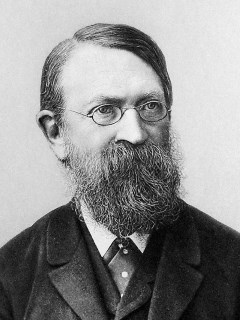
Publication details
Publisher: Springer
Place: Berlin
Year: 2012
Pages: 53-74
Series: Axiomathes
Full citation:
, "Phenomenology and phenomenalism", Axiomathes 22 (1), 2012, pp. 53-74.


Phenomenology and phenomenalism
Ernst Mach and the genesis of Husserl's phenomenology
pp. 53-74
in: Guillermo Rosado Haddock (ed), The other Husserl, Axiomathes 22 (1), 2012.Abstract
How do we reconcile Husserl's repeated criticism of Mach's phenomenalism almost everywhere in his work with the leading role that Husserl seems to attribute to Mach in the genesis of his own phenomenology? To answer this question, we shall examine, first, the narrow relation that Husserl establishes between his phenomenological method and Mach's descriptivism. Second, we shall examine two aspects of Husserl's criticism of Mach: the first concerns phenomenalism and Mach's doctrine of elements, while the second concerns the principle of economy of thought, which Husserl closely associates with a form of psychologism in his Logical Investigations. Our working hypothesis is that the apparent contradictory comments of Husserl regarding Mach's positivism can be partially explained by the double status he confers to his own phenomenology—as a philosophical program radically opposed to positivism, and as a method akin to Mach's descriptivism.
Cited authors
Publication details
Publisher: Springer
Place: Berlin
Year: 2012
Pages: 53-74
Series: Axiomathes
Full citation:
, "Phenomenology and phenomenalism", Axiomathes 22 (1), 2012, pp. 53-74.


